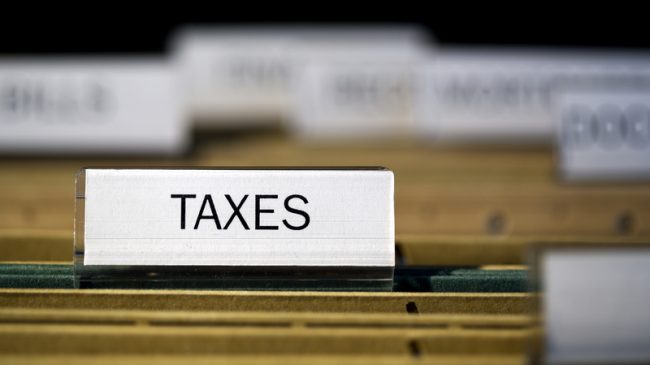Voter Guide: 2016 California Ballot Initiatives
In 2012 California voters approved a temporary tax increase on those earning more than $250,000/year. Prop 55 would extend that tax increase another 12 years and divide the revenues between the K-12 education system, community colleges, and health care.
Fiscal Impact:
According to the Legislative Analyst’s Office, continuing these tax increases would bring in between $4 billion and $9 billion each year depending on how the economy and stock market perform. About half of the money would fund K-12 schools and community colleges. The other half would be divided between health care spending and increased rainy day funds and debt payments.
Proponents’ Arguments For:
Supporters of Prop 55 argue that it will sustain education spending and the state budget simply by keeping existing tax rates on the rich. They argue that this tax only effects the wealthiest Californians who can most afford to pay it and need to pay their fair share and that Prop 55
Prop 55 also requires audits and online posting of annual accounting to ensure that education funds go to schools and are used in classrooms and not on administrative costs and bureaucracy, allowing Californians to see exactly where the money goes.
Without Prop 55 schools would face up to $4 billion in funding cuts. During the recession 30,000 teachers were laid off, class sizes grew, and the cost of community colleges doubled. Supporters argue that Californians cannot go back to those days. Prop 55 will help fund the estimated 22,000 new teachers needed next year alone, help keep down the size of classes, help restore art and music classes that were cut during the recession, and help prevent community college tuition rate hikes.
Supporters contend that it also funds crucial health care programs, and healthier children are healthier students. Revenues from the tax will be leveraged to secure federal matching dollars for Medi-Cal as well.
Opponents’ Arguments Against:
Opponents of Prop 55 say the measure is a broken promise. In 2012, California voters were promised a temporary tax increase that was to phase out in 2017. They contend that special interests have resorted to literally going into the constitution to edit the dates and add 12 years to the tax hike reneging on the promise made to voters in 2012.
Opponents present the official title from the 2012 tax hike ballot measure: Prop 30: “temporary taxes to fund education, guaranteed local public safety funding.” and ask whether temporary means temporary or not. They point out that Governor Brown thinks so: “that’s a temporary tax and, to the extent that I have anything to do with it, will remain temporary” he said when asked about plans to extend it.
Opponents of Prop 55 also argue that we don’t need higher taxes. California’s budget is finally balanced, and the state is increasing school spending, paying off debt and building up the rainy day fund. They assert that California is collecting excess tax revenue these days, as shown by the state budget recovering from a $16 billion deficit in 2012 to a $2.7 billion surplus in 2016. At the same time, education spending rose by $24.6 billion (a 52% increase), and Medi-Cal spending rose by $2.9 billion (a 13% increase). We don’t need higher taxes to balance the budget and sustain funding.
Opponents say that people may think Prop 55 is aimed at the rich, but the tax brackets hit by higher taxes includes tens of thousands of small businesses who are the main ones creating jobs in California right now. Thousands of them left California after their taxes were increased in 2012. This new tax hike will only drive more small businesses out of state and kill countless more jobs.
Discussion:
After the 2012 tax hikes were approved by voters, the increased spending on education went almost entirely to make rapidly growing payments to the teachers’ pension plan, not to classrooms. With the growth in the state budget since then and the rise in education spending, the dire circumstances of the recession are simply not the case anymore. These high special taxes are not needed to adequately fund California education. But almost every election includes a ballot measure for taxes or bonds for schools. Reason pointed all of this out when Prop 30 was proposed in 2012 and predicted that it would not be “temporary” and it only took a few years to prove us right.
Without this tax hike, education funding will still be at least $20 billion higher than it was in 2012-a massive increase given that the student population shrank during that time. . A 52% increase in funding did not fix the massive problems California’s education system faces, because the problems are not really lack of funds but lack of willingness to change how things are done. Those interested in California education should focus on fixing the system rather than throwing yet more money into the dysfunction.
Higher taxes have a big impact on jobs and job growth. This measure will deal a damaging blow to the California economy and freelance workers in particular. Since 2000, the United States has seen a drastic increase in sole proprietorships. These act as one-man, one-business entities so that small business owners and freelance workers can simply file one joint tax return that is both their business and personal income. They are indicative of a dynamic economy that is changing the way people earn income. By 2020, nearly 50% of the U.S. workforce will engage in some type of freelance work, with many of those full-time freelancers. They drive Uber in the morning, designs websites in the afternoon, and cater food at night, and then start their own business. Using a sole proprietorship means all the money earned working from separate sources or small businesses is stacked up and taxed as one personal income. These freelancers and small business owners are the not the “elite 1%” of the American economy; they are hardworking Americans who have trained for their marketable skills and earn themselves a good living as they moved up the income ladder. Prop 55 hits these people because their businesses are taxed as personal income, even though they are, by and large, not wealthy.
Small business owners who already arguably get taxed twice by the system (once in corporate tax and once in personal income tax) will now pay more in taxes as well. This means reductions in business expenditures which usually means cuts to payroll and jobs.


